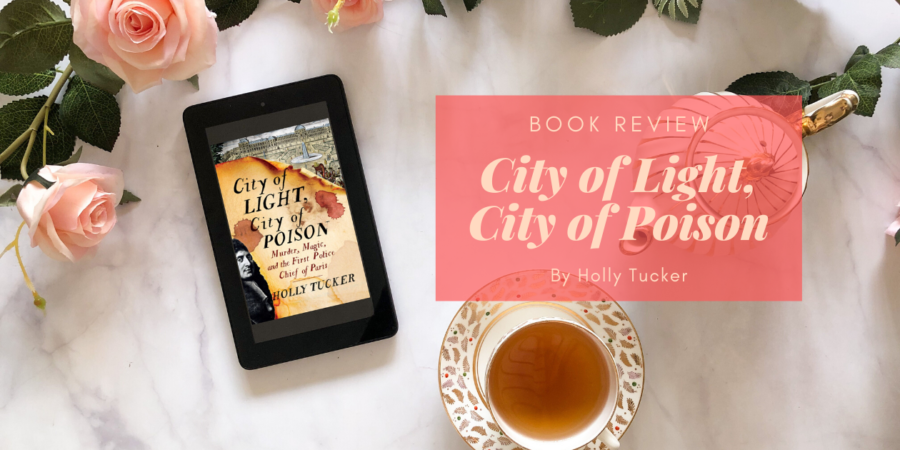This is one of those books that I thought was about one thing (A) but it was actually about another (B) but B turned out to be so interesting that I didn’t mind that it wasn’t about A. At first, I thought that City of Light, City of Poison was going to be about La Reynie and his work as the first police chief of Paris. What this book actually is about is a detailed account of how a bunch of people, many of them French nobility, decided to poison and curse one another. There was also a lot about the various mistresses of Louis XIV, the sun king.
Although this isn’t really about Reynie’s career or investigation (although both do get mentioned), the story of the Affair of the Poisons was fascinating, as was its connection to French nobility. Tucker notes in the introduction that she tried not to dramatise the story, instead relying on the detailed notes left by La Reynie, but the story is fascinating even without any additional dramatisation.
I was very intrigued by the black masses and how religion and witchcraft interacted. I wish that this was explored further in the book, but I can see how going too far down this road would have been a huge digression – still, I wonder if the priests that were mentioned performing the black masses were actually Catholic priests, or if they were just referred to as ‘priests’ because they were Satanic priests. The book doesn’t really distinguish between that, although I got the sense that they were Catholic priests who also did black masses.
The only downside of the book was that it got a little confusing to read at times. Tucker switches between names and titles, and it can be confusing to hear someone being referred to by their name, and then after they get a title, by that title, all within a couple of pages. I managed to follow the story, but I definitely lost track of who was who, which made the secret trials a bit confusing.
The book ends with an author’s note on how La Reynie’s papers were preserved and how they allowed Tucker to write such a detailed account of the Affair of the Poisons. It’s a fascinating story and you definitely can’t skip this part.
Overall, this was a fascinating book about a segment of French history I had no idea about. If you’re into palace intrigue and scandalous affairs, this book is definitely for you.

I can see why this one wouldn’t necessarily be disappointing once you discovered it wasn’t what you thought it would be at first. It sounds really interesting too! I am glad you ended up enjoying it.
It’s a good thing I like true crime as well! Definitely a fascinating book(:
Another pretty teacup! 😀 Is the book primarily non-fiction?
… I mean, yes, non-fiction. But did you get the sense that there was embellishments and interpretations?
Yes! My teacup collection has grown quite a bit in the last week too!
I didn’t really feel like the author embellished too much! She did write that she made a point of sticking to only what she could find, and according to her, the papers left behind by La Reynie were extensive and enabled her to write this without having to do a lot of assuming/leaps of conjecture.
That’s so impressive, given that this was … what? 400 years ago? (I once took a lit class on early Canadian explorers / cartographers, and they were notorious for making horrible notes.) La Reynie — thank-you for being so thorough!
I’m also super impressed with the author. It’s one thing to not dramatize things, but quite another to know enough about the time period (and the people in it) to be able to fill in the gaps with relying (too much) on creativity/interpretation. Seems like a very worthwhile read.
It is definitely impressive! I enjoyed this – I think it’s definitely worth a read if you’re interested in the topic (:
* without relying too much on